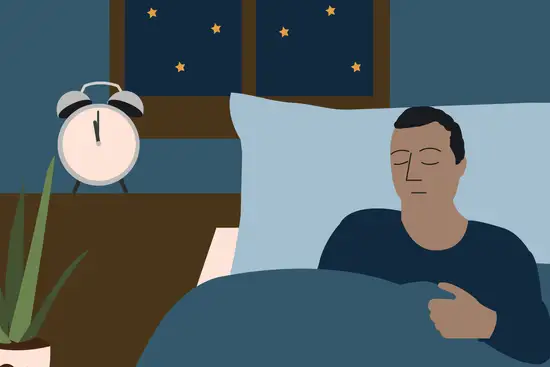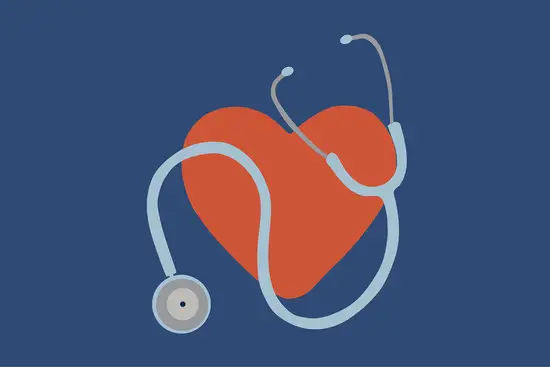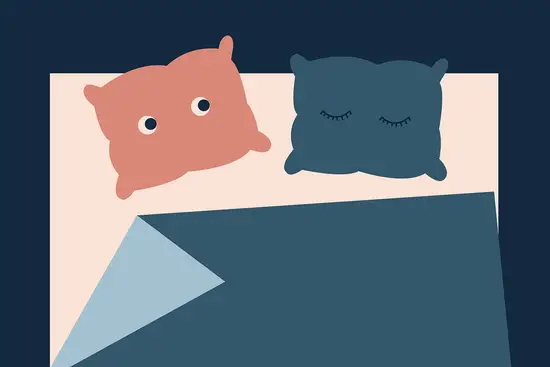Sleep is a crucial part of life. It’s the key to improved thinking, memory, mood, physical strength and a longer life. Sadly, many people don’t get enough of it, and aren’t getting the best out of their time awake.
Even worse, there’s many of us who find that day after day, month after month, year after year, we simply can’t sleep no matter how much we try.
That’s a long time spent not firing on all cylinders. That’s the reality of insomnia.
There are ways to get your life back from the grip of insomnia, but some are more effective than others. In this article, we’re going to outline why we think Sleepstation is among the best.
CBTi helps with insomnia
There are a number of tools you can use to improve your sleep, ranging from medicines to make you drowsy before going to bed, through to a number of unproven therapies such as hypnosis or acupuncture. At Sleepstation, we offer a form of what’s called Cognitive Behavioural Therapy for insomnia (CBTi) that is administered digitally (so it’s called dCBTi).
CBTi and dCBTi use a number of techniques to help improve sleep such as sleep restriction, thought blocking and encouraging good sleep hygiene, which are introduced over a number of weeks in the form of an online course. In both face-to-face and digitally delivered forms, CBTi is:
- not reliant on using chemical means to alter sleep
- based on decades of sound science.1
- able to give long lasting improvements in sleep in a way that pharmaceuticals don’t
- suitable for people with other health issues, such as anxiety or depression.
Types of dCBTi service
There are a number of services that offer dCBTi, but not all dCBTi services are exactly the same. This is important, because the differences between services affect how likely you are to stay with the treatment, and how likely the treatment you choose will be to improve your sleep for the long-term, after therapy has finished.
There are three main types of dCBTi service2. These are:
- dCBTi as a support to traditional face-to-face CBTi (e.g. CBTi coach)3
- fully automated dCBTi: Treatment is administered and adjusted by an algorithm, with no human input (e.g. Sleepio)
- guided dCBTi: Treatment is delivered online, but is monitored and adjusted by dedicated, trained staff, many of whom have built careers in caring for people. This is what Sleepstation offers.
We offer guided dCBTi because we believe it is the best way for people with insomnia to improve their sleep and there is sound science to support our opinion on this matter.4
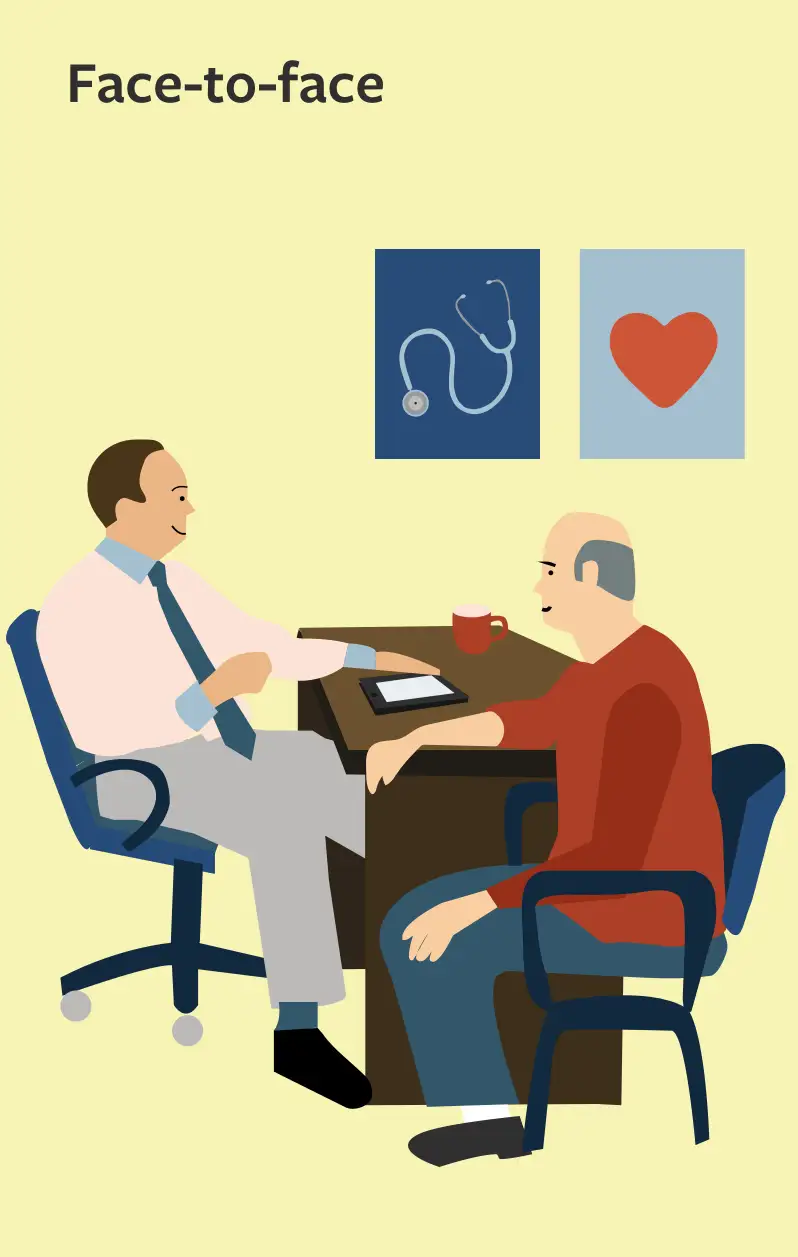
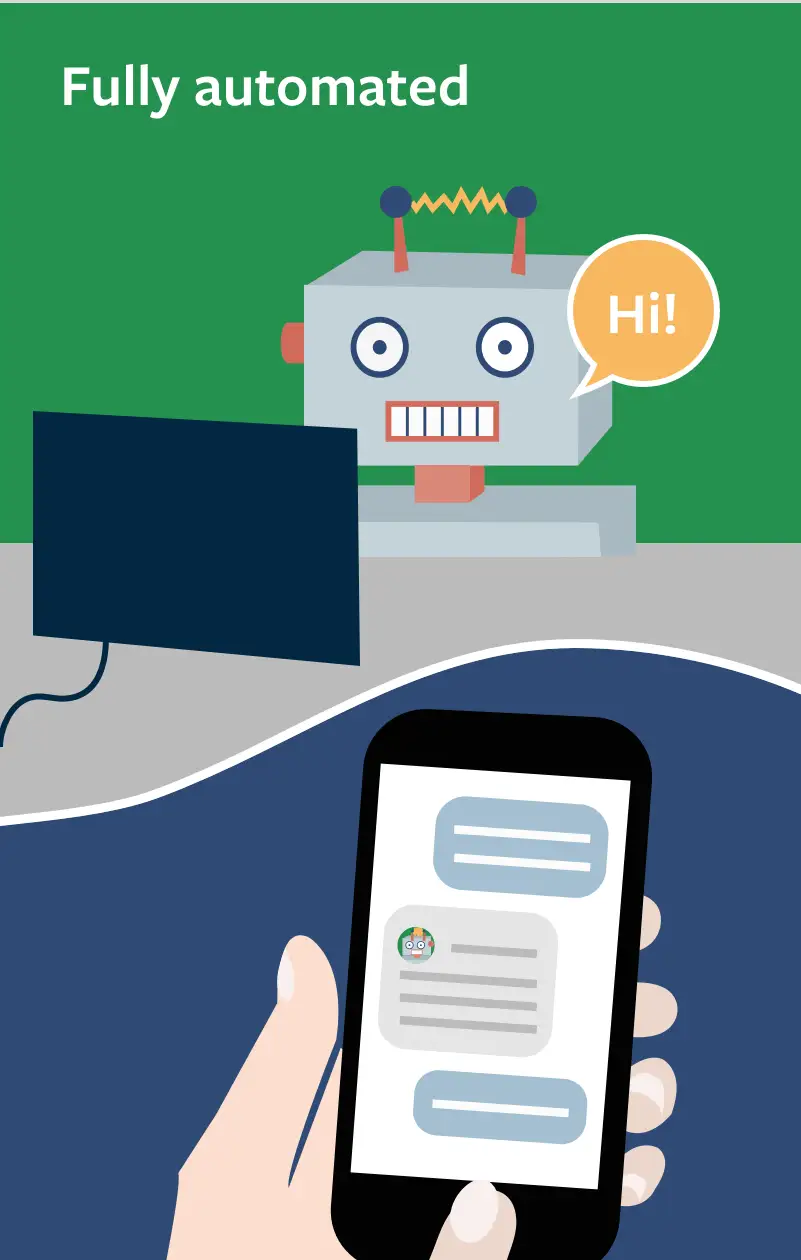
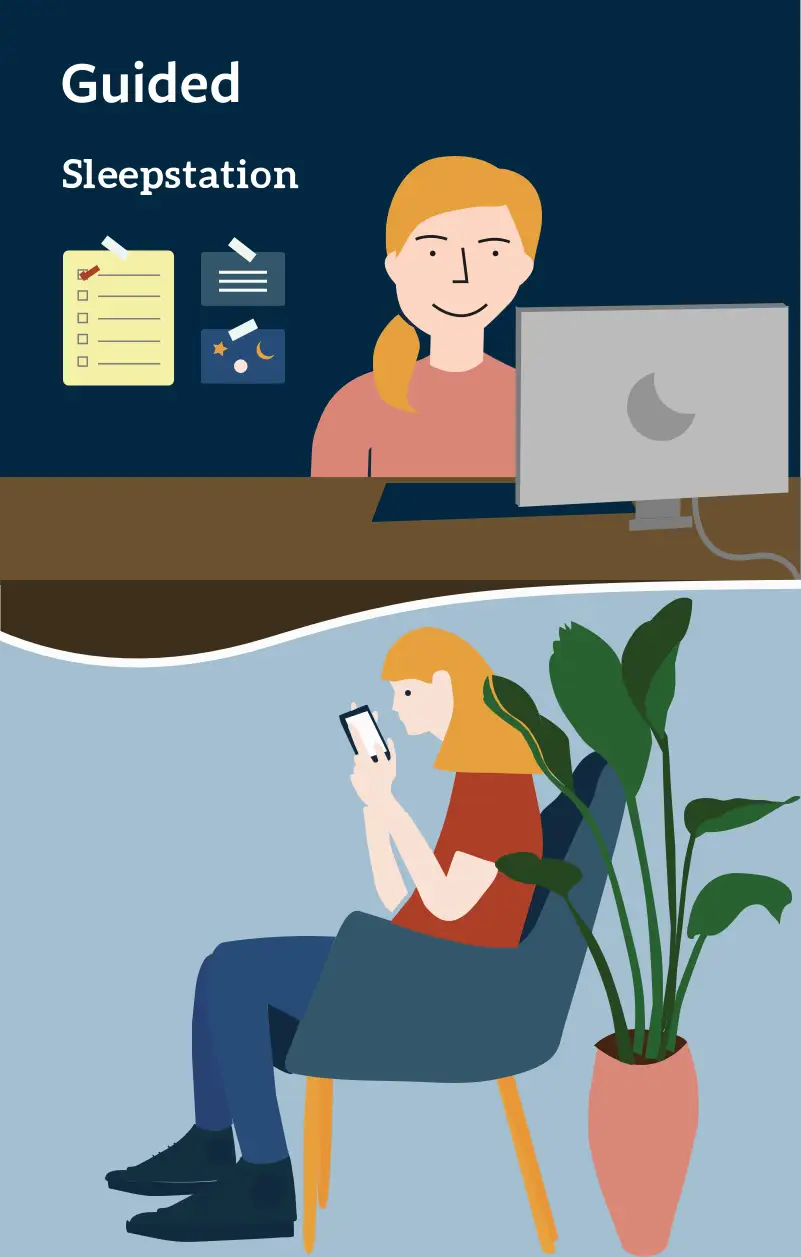
The advantages of dCBTi from Sleepstation
You might think that receiving treatment online rather than face-to-face means that it will be less effective, but this isn’t the case for insomnia. It’s important to recognise that insomnia is often caused by psychological factors and unhelpful behaviours. These factors can be addressed anytime and anywhere, unlike a broken bone, which would require physical examination and treatment.
In fact, digitally delivered dCBTi has been shown to be just as effective as traditional, face-to-face CBTi.5 This means there’s no disadvantage to going digital.
Sleepstation is convenient
With no need to schedule face-to-face appointments, we’re able to start helping you whenever you’re ready. That means fewer days and weeks lost to battling with any sleep difficulties you face while waiting for an appointment.
Moreover, the fact you can use Sleepstation anywhere where you can access the internet cuts out the inconvenience of needing to arrange time off work and travel to see specialists in person at physical sleep clinics.
We’re also able to support you through the technology you’re most comfortable using, with our interfaces being available for computers, smart phones and a wide range of tablet devices.
The support you need. The science that works
What makes Sleepstation different? It’s not just the techniques, it’s how we deliver them. Our unique hybrid approach combines proven psychological strategies with expert support to help you:
- understand what’s really affecting your sleep
- stay motivated and on track
- build habits that lead to lasting change
- achieve deep, restorative sleep.
This isn’t a quick fix. It’s a long-term solution, backed by science and delivered with care. Join the thousands who’ve transformed their sleep with Sleepstation.
Sleepstation is made for you
Addressing insomnia isn’t an overnight process, especially if you’ve had difficulties with insomnia for a long time. This means that without the right encouragement, it’s often easy to give up trying to improve your sleep, leaving you feeling isolated and stuck, which can be a problem with fully automated dCBTi solutions. Sleepstation is different. We’ve learnt lessons from the science and have used them to improve our service.
We know that people are able to stay with dCBTi treatment better when the theory of treatment is explained to them and if they feel that they aren’t alone over the course of treatment.6 7
That’s why our service is fully supported by a team of sleep experts, therapists and dedicated, experienced sleep coaches guiding people just like you back to better sleep.
- If you don’t understand something, we’re able to spend time explaining the ‘why behind the how’ of dCBTi in a way that’s tailored to you.
- By analysing your sleep data and taking into account your personal circumstances and any problems you’ve had with treatment, we can adapt the course to something that works better for you.
- We work person-to-person with you in making these adaptations, just like working with a face-to-face therapist. We are able to respond to any queries and issues you have within days instead of the weeks you’d wait to review things with a therapist in clinic.
- We help you through low motivation and bad days by simply checking in with you and having a chat. After all, these challenges aren’t something a computer can understand, so why use a computer to fix them?
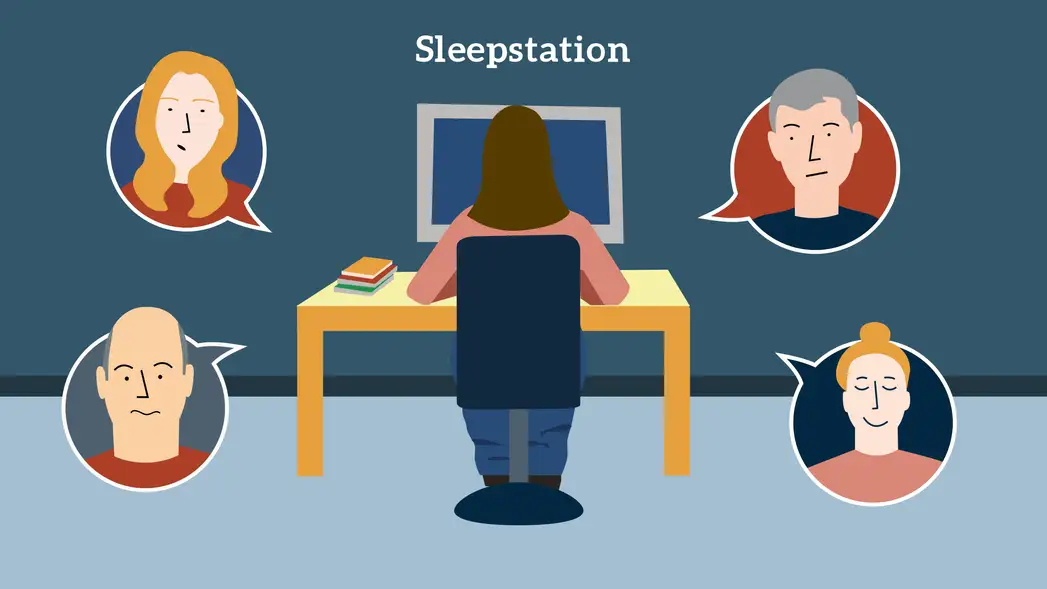
These differences don’t just make the experience of using Sleepstation more pleasant. They are what makes Sleepstation so effective at helping people sleep better. Let’s take a look at just how much better.
Sleepstation is highly effective
For dCBTi treatment to work well, you have to be able to see it through, and the treatment must give real, measurable benefits. This means choosing a service that offers you the best chance at those is critical to improving your sleep. This is where Sleepstation stands head and shoulders above other services. Looking at the science, we see that:
- Completion rates for Sleepstation (87%) are very high amongst NHS referred patients compared to the closest alternative, Sleepio (73%).4 8
- Our approach to dCBTi has resulted in the most marked improvements in sleep efficiency of any dCBTi service.9
- Wider benefits, like a reduction in symptoms of depression and anxiety, can result from using Sleepstation. In a recent study, we found that 47% of people with depression as well as insomnia were no longer depressed after completing the Sleepstation programme, even though they weren’t provided with any specific treatment for their depression.
Success stories
With results like these, it’s no surprise that we receive glowing feedback from the people who matter the most, the people we help, people like you.
Jan P
From Pocklington
Sleepstation has changed my life! I’m thrilled that I am now getting at least six hours sleep at a time.
Richard
45, from Maidstone
This course has been fantastic. The results have been life changing.
Rachel
24, from Eckington
This course was the best thing that’s happened for me in a very long time.
Summary
- If you have trouble sleeping, CBTi is very likely to help
- You can receive CBTi over the internet, this is called dCBTi
- There are many dCBTi providers and we believe Sleepstation is the best because of its high completion rate, and excellent results.
So, if you feel as though your sleep could be better and want quality, long-lasting improvements, based on decades of sound science, register for Sleepstation today and start living the best waking life you possibly can.
References
- Trauer JM, Qian MY, Doyle JS, Rajaratnam SMW, Cunnington D. Cognitive behavioral therapy for chronic insomnia: A systematic review and meta-analysis. Ann Intern Med 2015; 163: 191–204. ↩︎
- Luik AI, Kyle SD, Espie CA. Digital cognitive behavioral therapy (dCBT) for insomnia: A state-of-the-science review. Curr Sleep Med Rep 2017; 3: 48–56. ↩︎
- Kuhn E, Weiss BJ, Taylor KL, Hoffman JE, Ramsey KM, Manber R et al. CBT-I coach: A description and clinician perceptions of a mobile app for cognitive behavioral therapy for insomnia. J Clin Sleep Med 2016; 12: 597–606. ↩︎
- Xu Z, Anderson KN. Real-world evaluation of digital CBT for insomnia in the primary care setting-many should not log on to doze off. The Cognitive Behaviour Therapist 2019; 12. doi:10.1017/S1754470X19000242. ↩︎
- Zachariae R, Lyby MS, Ritterband LM, O’Toole MS. Efficacy of internet-delivered cognitive-behavioral therapy for insomnia – A systematic review and meta-analysis of randomized controlled trials. Sleep Med Rev 2016; 30: 1–10. ↩︎
- Meaklim H, Abbott J-AM, Kennedy GA, Murray G, Klein B, Rehm I. Lessons learned from delivering an internet intervention for insomnia in an Australian public hospital outpatient setting. Aust Psychol 2019; 54: 225–234. ↩︎
- Coulson NS, Smedley R, Bostock S, Kyle SD, Gollancz R, Luik AI et al. The pros and cons of getting engaged in an online social community embedded within digital cognitive behavioral therapy for insomnia: Survey among users. J Med Internet Res 2016; 18: e88. ↩︎
- Luik AI, Bostock S, Chisnall L, Kyle SD, Lidbetter N, Baldwin N et al. Treating depression and anxiety with digital cognitive behavioural therapy for insomnia: A real world NHS evaluation using standardized outcome measures. Behav Cogn Psychother 2017; 45: 91–96. ↩︎
- Anderson K, Goldsmith P, Gardiner A. A pilot evaluation of an online cognitive behavioral therapy for insomnia disorder – targeted screening and interactive Web design lead to improved sleep in a community population. Nat Sci Sleep 2014; : 43.14. ISSN 1179-1608. doi: 10.2147/NSS.S57852. ↩︎
